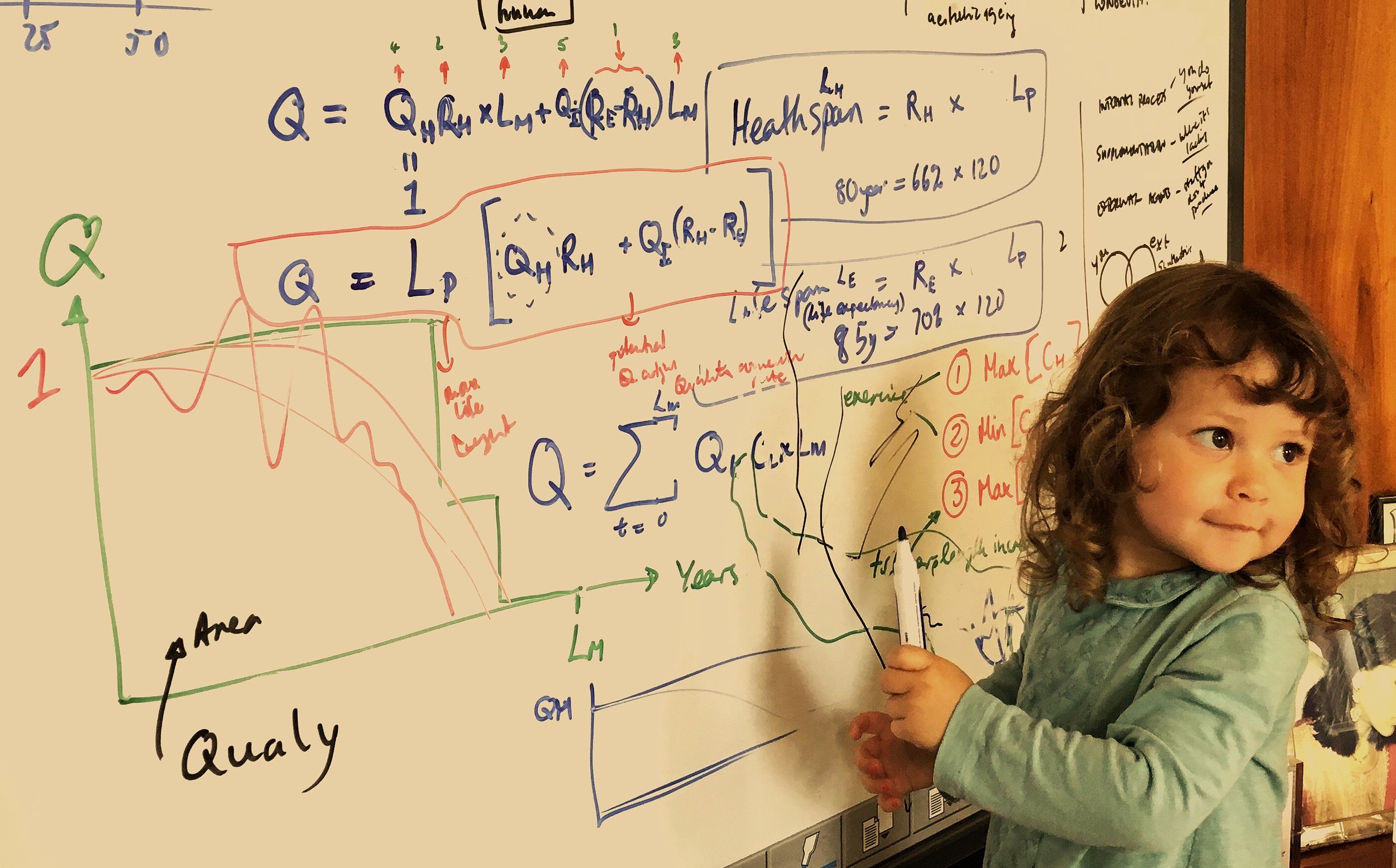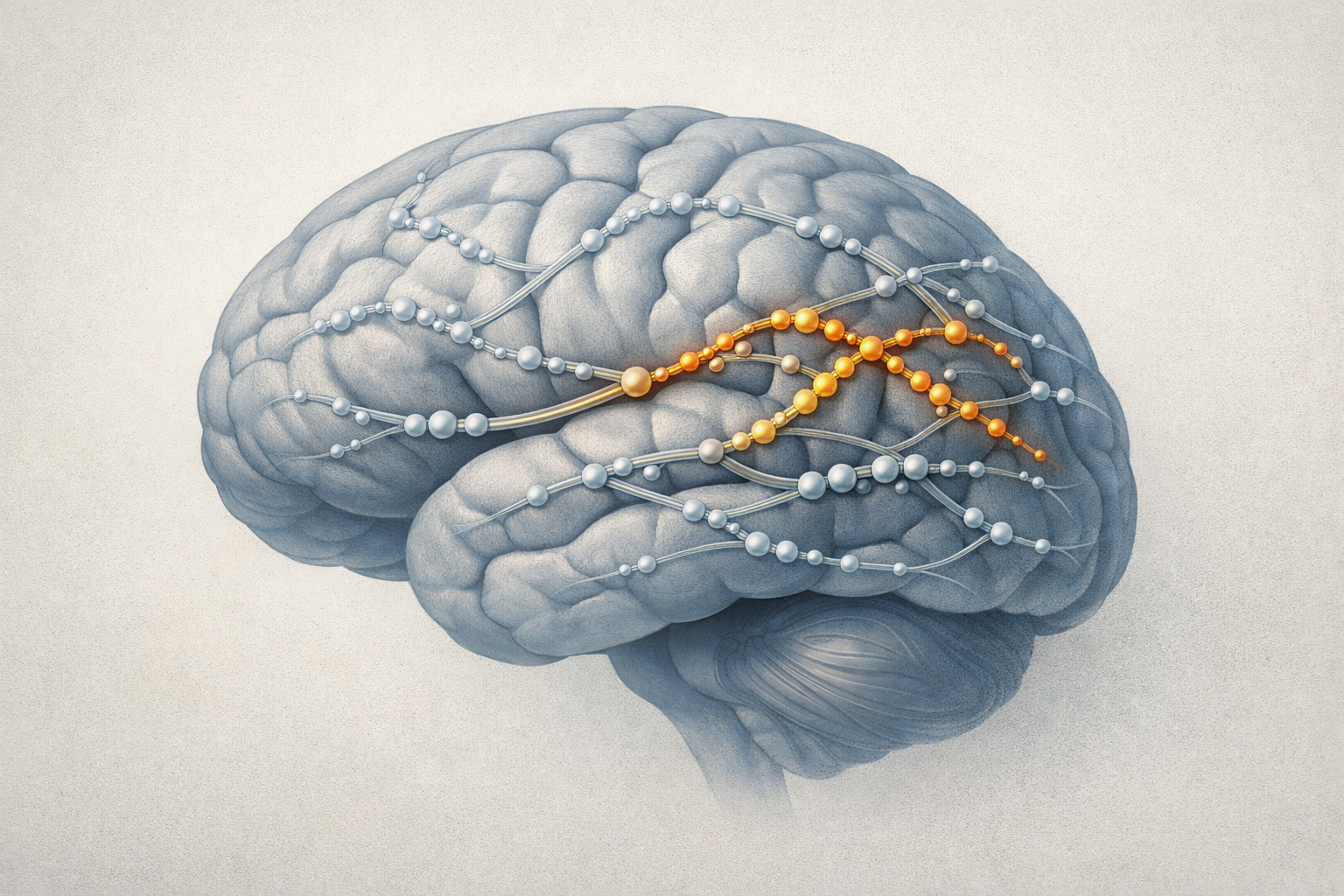
Deep insights. Simply put
Carefully curated. Deeply researched. Free of ads and shackles.
There are brilliant content producers with the finger on the pulse. So we won’t regurgitate the news just to keep up with the crowd, except if the news needs an urgent second opinion. And this is not a rarity. We take our time to see through commercial biases, and noodle on the nuances behind the headlines. Always in an easily digestible form. An individual human may be pear-shaped but is never bell-shaped - meaning, statistical evidence for whole populations may not fit well with you if you’re an edge case or working in extremes. Like many of our patients. While on the programme or alumni membership we’ll take the topics you ask us about and tailor what it means to those like you. And while we use AI tools to help us search and type faster, rest assured, we don’t rely on anyone except the experts.
-
We geek out on:-
Preventive & therapeutic medicine
Leadership & relationships
Health-span research
Human Performance Science
Nutrition and 'Notrition' (fasting) and Nootrition (cognitive enhancement)
Sleep, Jetlag and circadian biology
Fitness & Physique
All things Psyche...
-
,,,,
-
…

The APOE gene: how one genetic variant might shape Alzheimer’s risk
If you’re focused on thriving into your 7th or 8th decade, few scenarios are more unsettling than the thought of gradually losing your memory. Dementia robs people of their independence and quality of life, but the impact extends far beyond that of us as individuals. It is heartbreaking for friends and family too. In the UK alone, more than half a million people live with Alzheimer’s disease, and treatments offer only modest slowing of decline.

Rapid amyloid clearance in hours: what this 2025 mouse study shows us
Could the fastest way to treat Alzheimer’s disease be not to attack plaques in the brain, but to restore the brain’s clearance plumbing?
Alzheimer’s disease has long been one of medicine’s most stubborn challenges. For decades, scientists have approached this battle on two fronts: stopping the buildup of amyloid plaques in the brain, and getting drugs past the brain’s ultra-strict protective barrier, the Blood-Brain Barrier (BBB).
A recent 2025 paper in Signal Transduction and Targeted Therapy reported a striking finding in an Alzheimer’s mouse model: using nanotechnology, they were able to half brain amyloid within 2 hours, and importantly, restored spatial learning and memory in the mice, comparable to their normal peers.

Creatine for female health: Don’t fall into the trap of thinking it’s just for elite athletes
Once seen as a supplement exclusively for male bodybuilders, creatine is so much more than a tool for athletic performance. The latest research is revealing its powerful benefits for a much broader audience, especially women. From boosting brain health and mood to strengthening bones and muscles, creatine offers a wide range of benefits that can support a healthy, high-performing life. Dr Ran Crooke looks at the science behind creatine and explores why it's a game-changer for women at every stage of life.

Tapping the Vagus Nerve: Could a Gentle Electrical Pulse Fine-Tune Performance, Mood and Recovery?
Why is the vagus nerve getting so much attention?
From challenging work situations to Strava leader-boards, people are evermore aware of ways to monitor their life-load and recover faster afterwards. At the centre of this sits the vagus nerve. Roughly 80% of its fibres carry information up to the brain, providing live “telemetry” on the body’s parasympathetic balance. Surgeons have long implanted electrodes around the cervical vagus to treat epilepsy and depression. Now pocket-sized gadgets promise to reach the same pathway through the skin of the outer ear or neck to stimulate the vagus nerve (transcutaneous VNS, or tVNS).

Navigating Sleep and Brain Health: Insights from the UK Biobank Study
In the ever-evolving field of sleep research, the recent study published in the journal 'Sleep' titled, "Comprehensive assessment of sleep duration, insomnia, and brain structure within the UK Biobank cohort" marks a significant leap in understanding the complex interplay between sleep habits and brain health. Dr Andrew Crockett delves into this research and provides a critical analysis; shedding light on a subject of paramount importance for founders and professionals who grapple with the delicate balance between work demands and rest.

The Circadian Advantage: How to Make Smarter Investment Decisions with Your Body Clock
Circadian rhythms are our natural sleep-wake cycles, our body clock. They play a significant role in every cell in our body but also in our cognitive function. Within waking hours, an individual reaches peak performance during their circadian “acrophase”, and their performance drops during their “circadian nadir”. The timing of this window of optimal alertness classifies individuals as either a morning lark or night owl chronotype. Larks experience peak cognitive performance in the morning and the opposite is true of owls, who perform better in the evening. Research has shown that circadian rhythms can thus impact investment decision-making.

